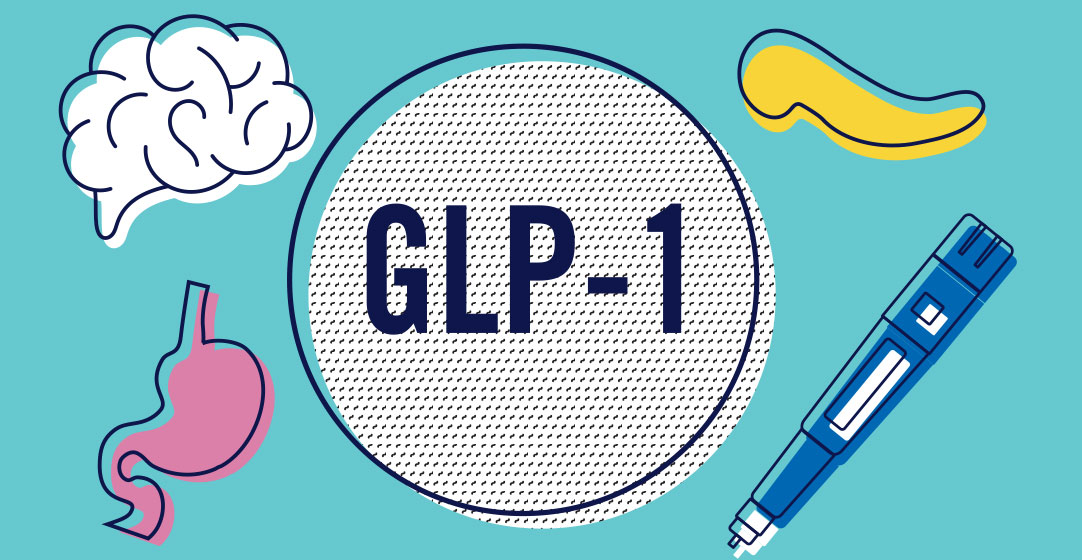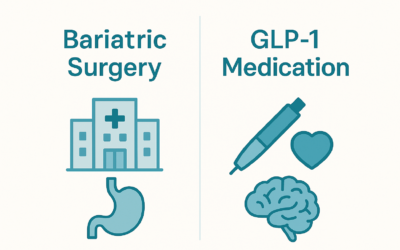Maybe it’s the side effects you’ve heard about — or the idea that once you start, you’re stuck on it forever. Or maybe it just doesn’t sit right with you that a drug could be the answer to something so personal and frustrating as weight.
And then you see it: an ad for “Brazilian Mounjaro.” Or “herbal Ozempic.” A miracle detox. A magic spray. Something “natural.” Something “fast.” Something “they don’t want you to know about.”
If it sounds too good to be true — that’s because it is.
If you’re looking for Ozempic alternatives, you’re not alone. But it’s important to separate the noise from the truth. Because the internet is full of noise. And much of it is designed to take your money, not to help you heal.
So let’s talk about the real reasons people search for alternatives to Ozempic. Let’s look at what actually works, what doesn’t, and how to make a choice that serves your long-term health — not just your short-term frustration.
Why people look for Ozempic alternatives
If you’re looking for something other than Ozempic, you’re probably not doing it on a whim. Maybe you’ve already tried it and felt miserable. Maybe the cost made your jaw drop. Maybe you’re uneasy about being on a drug long-term. Or maybe the whole idea of using medication for weight loss just doesn’t sit right with you.
For many, it starts with the price. Ozempic isn’t cheap, and if your insurance doesn’t cover it for weight loss — which many don’t — you could be looking at paying $800 to $1,200 a month out of pocket. That’s not sustainable for most people.
Then there’s how it makes you feel. A lot of folks experience side effects like nausea, vomiting, fatigue, headaches, or digestive trouble. Some adjust, some don’t. If your first experience was rough, it’s only natural to look for a better path.
And let’s not forget the long haul. Maybe you’ve heard that once you start a GLP-1, you’re stuck with it. Forever. That kind of commitment can be scary. It’s one thing to try a new medication — it’s another to think you’ll never be able to stop.
Finally, there’s the philosophical aspect of things. Some people just don’t like the idea of taking a medication to lose weight. They want something natural. Or something more holistic. Or maybe just something that doesn’t require a prescription or a needle.
Whatever your reason for investigating Ozempic alternatives, it makes sense; these are all thoughtful, honest concerns. The only risk is when that very understandable questioning leads you into the arms of something that sounds better — but isn’t.
What not to trust when it comes to Ozempic alternatives: The shady world of scams, shortcuts, and sketchy supplements
Let’s start here, because this is where a lot of people land when they go looking for an Ozempic alternative — and it’s where things can go really wrong really fast.
You’ve probably seen them: ads for “herbal Ozempic” or “Brazilian Mounjaro,” detox kits that “melt belly fat,” or mysterious vials being sold through DMs on Instagram. They promise fast results. They use phrases like “natural GLP-1,” “clinically inspired,” or “pharmaceutical-free.”
Here’s the truth: none of these products are what they claim to be. There’s no such thing as a natural GLP-1. “Clinically inspired” doesn’t mean proven in clinical trials — it doesn’t mean anything at all. And “pharmaceutical-free” doesn’t mean good for you — arsenic is pharmaceutical-free too, but you certainly don’t want to eat it.
Some of these so-called “Ozempic alternatives” ads are outright scams — designed to steal your money, your credit card information, or your trust. Others are just unregulated supplements with unknown ingredients. A few contain real (but illegally obtained) active ingredients like semaglutide or tirzepatide — and that’s even more dangerous, because you have no way of knowing how or where they were made, how they were stored, or whether they’re safe.
And still others are just snake oil: teas, drops, or pills that contain nothing particularly harmful, but also nothing helpful. They might make you feel jittery, dehydrated, or sick — but they won’t help your body reset the systems that actually control weight.
These products thrive because they exploit real frustration. They know you’ve tried diets that didn’t work. They know you’re tired. They know you want something that works fast, works naturally, and doesn’t cost a fortune. So they tell you what you want to hear.
But here’s the thing:
Even Ozempic itself isn’t a quick fix.
It’s not magic. It doesn’t work overnight. And it doesn’t work without you.
Yes, it helps regulate hunger. Yes, it helps with insulin and blood sugar and fullness signals. But it’s still just one tool. The people who succeed with it still have to eat differently, think differently, move differently. There is no weight loss solution — medication or otherwise — that replaces the work of showing up for your body.
So if someone says they can give you “Ozempic results without the drug” — for $49, in a bottle, no prescription needed — run the other way. You deserve better than that.
What actually works (and what to know first) when it comes to Ozempic alternatives
Let’s shift to the real world. What if you still want results, and you want them from something trustworthy, but for whatever reason you don’t want to take Ozempic?
Let’s talk about your options.
Ozempic isn’t actually FDA-approved for weight loss — it’s a diabetes drug. That doesn’t mean it doesn’t work for weight loss; it absolutely does, which is why so many doctors prescribe it off-label. But if you’re looking for medications that are FDA-approved specifically for weight management, you’re looking at some different names.
Wegovy (semaglutide) is one of them. It uses the same active ingredient as Ozempic, just at a higher dose and under a different name. Then there’s Zepbound (tirzepatide), which is a newer option that works on two hormone pathways instead of one. Both Wegovy and Zepbound are approved specifically for weight loss in people who qualify medically.
There are also older options like Saxenda (liraglutide), which is dosed daily instead of weekly, and GLP-1s like Trulicity or Rybelsus that are FDA-approved for diabetes but sometimes used off-label for weight loss.
They all vary in how well they work, how often they’re taken, and how people tolerate them. But they all help your body feel full sooner, slow down digestion, and support more stable blood sugar levels — which can lead to weight loss over time.
These are real alternatives, and they’re worth talking to your provider about — especially if Ozempic hasn’t worked for you, or isn’t affordable through your insurance. There are also compounded versions of semaglutide and tirzepatide, which aren’t FDA-approved but may be prescribed by your provider if they believe it’s the right option for your needs.
Ozempic alternatives: What if you want to avoid medication altogether?
Let’s be honest: some people just don’t want to go the medication route. And that’s okay; you get to decide how you approach your health. But if you want to avoid medication, it’s important to understand what that actually means — and what it will ask of you. Because again, there is no quick fix. Not in a bottle, not in a detox, not even in a shot.
Here’s what we know works when medication isn’t part of the plan:
You need a real plan — not just a diet. Most people don’t fail at weight loss because they’re weak or lazy. They fail because the tools they’ve been given are garbage — fad diets, starvation tactics, shame-based apps that do more harm than good. Your body isn’t broken; it’s doing what it’s designed to do. If you’ve been stuck in starvation mode for years, your system has probably learned to hang on to every calorie it gets; that’s why long-term success almost never comes from just trying to “eat less.”
Instead of just “eat less, move more,” you need a plan that supports your metabolism instead of punishing it. That means eating enough, building muscle, managing stress, getting enough quality sleep — and yes, probably adjusting your relationship with food over time. The way we eat is connected to everything: our emotions, our schedule, our history, our hormones. You can’t just willpower your way through that. Behavior change matters — but it’s not something you should do alone.
Support matters.
Coaching helps. Therapy helps. So does having a provider who listens to you and gives you tools instead of judgment. You don’t need to be perfect, but you do need structure. You need a system that helps you keep going, even when your motivation dips.
It’s easy to think that if you’re not making huge changes, nothing’s happening. But small changes matter more than you can imagine. Little things stack up — especially when they’re things you can stick with. Things like walking more, or adding protein to your breakfast. Or drinking more water. Reducing ultra-processed foods. Managing screen time before bed. These things don’t feel dramatic — but they shift your baseline. And over time, your baseline is what changes everything.
And yes, you can use medication as a bridge — not a forever plan. Some people start with a medication like Ozempic or Zepbound to quiet the food noise, then work on lifestyle, behavior, and emotional patterns while the medication gives them breathing room. Later, they taper off, or reduce the dose, or switch to a lower-maintenance option.
That’s not a failure. That’s a strategy.
It’s okay to need help starting. And it’s okay to decide that the help you need doesn’t involve medication. Either way, the goal is the same: real, sustainable change.
Ozempic alternatives: Real change doesn’t come in a mystery bottle
If you’re looking for Ozempic alternatives, what you’re really looking for is a way to feel better in your body — without being lied to, judged, or pushed into something that doesn’t fit your life.
So here’s the truth:
There is no “herbal Ozempic.” There is no “Brazilian Mounjaro.” There is no shortcut, detox, or diet tea that will fix the deep metabolic patterns behind weight gain.
If something sounds too good to be true, it probably is. But there are real tools, real strategies, and real support available. Claya can help.



